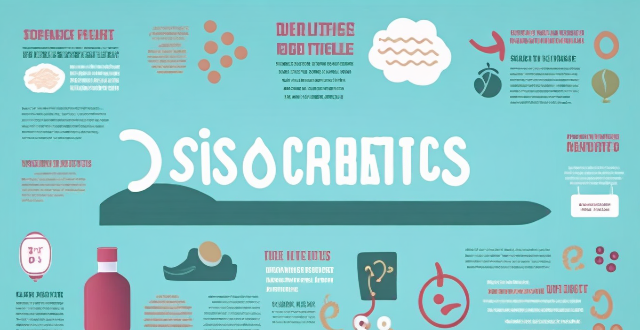The text discusses the importance of nutrition for athletes, focusing on how a well-balanced diet can help prevent sports injuries. It highlights the key nutrients necessary for injury prevention, such as protein for muscle repair and growth, carbohydrates for energy production, healthy fats for joint health, and vitamins and minerals for overall health. The text also emphasizes the importance of hydration and meal timing for optimal performance and injury prevention.

Nutrition and Sports Injury Prevention
Importance of Nutrition for Athletes
Nutrition plays a crucial role in maintaining the overall health and performance of athletes. It is essential for energy production, muscle recovery, and injury prevention. A well-balanced diet can help reduce the risk of sports injuries by providing the necessary nutrients for optimal physical functioning.
Key Nutrients for Sports Injury Prevention
Protein
Protein is vital for muscle repair and growth. Consuming adequate amounts of protein helps to rebuild damaged muscle tissue and prevent further injury. Good sources of protein include lean meats, fish, eggs, dairy products, and plant-based options such as beans, lentils, and tofu.
Carbohydrates
Carbohydrates are the primary source of energy for athletes. They help to maintain muscle glycogen stores, which are depleted during exercise. Eating enough carbohydrates ensures that your body has the fuel it needs to perform at its best and recover from workouts. Whole grains, fruits, vegetables, and legumes are excellent sources of carbohydrates.
Fats
Healthy fats are important for joint health and reducing inflammation. Foods rich in omega-3 fatty acids, such as salmon, flaxseeds, and walnuts, can help protect against joint pain and stiffness associated with sports injuries.
Vitamins and Minerals
Vitamins and minerals play a significant role in bone health, immune function, and antioxidant protection. Some key nutrients for sports injury prevention include:
- Calcium: Essential for strong bones and teeth (found in dairy products, leafy greens, and fortified foods).
- Vitamin D: Helps your body absorb calcium (obtained through sunlight exposure or supplements).
- Iron: Crucial for oxygen transport in the blood (found in red meat, poultry, fish, beans, and fortified cereals).
- Magnesium: Supports nerve and muscle function (found in nuts, seeds, whole grains, and dark chocolate).
Hydration
Staying properly hydrated is also essential for preventing sports injuries. Dehydration can lead to fatigue, reduced coordination, and increased susceptibility to injuries. Drinking plenty of water before, during, and after exercise is crucial for maintaining optimal performance and minimizing the risk of injury.
Meal Timing
Eating at regular intervals throughout the day can help ensure that your body has a steady supply of nutrients for energy production and recovery. Consuming a pre-workout meal containing carbohydrates and protein can provide sustained energy during exercise, while a post-workout meal rich in protein and carbohydrates can aid in muscle recovery and replenish glycogen stores.
In conclusion, proper nutrition is essential for preventing sports injuries by supporting overall health, providing energy, promoting muscle recovery, and maintaining joint health. By consuming a well-balanced diet consisting of protein, carbohydrates, healthy fats, vitamins, minerals, and staying hydrated, athletes can significantly reduce their risk of suffering from sports-related injuries.